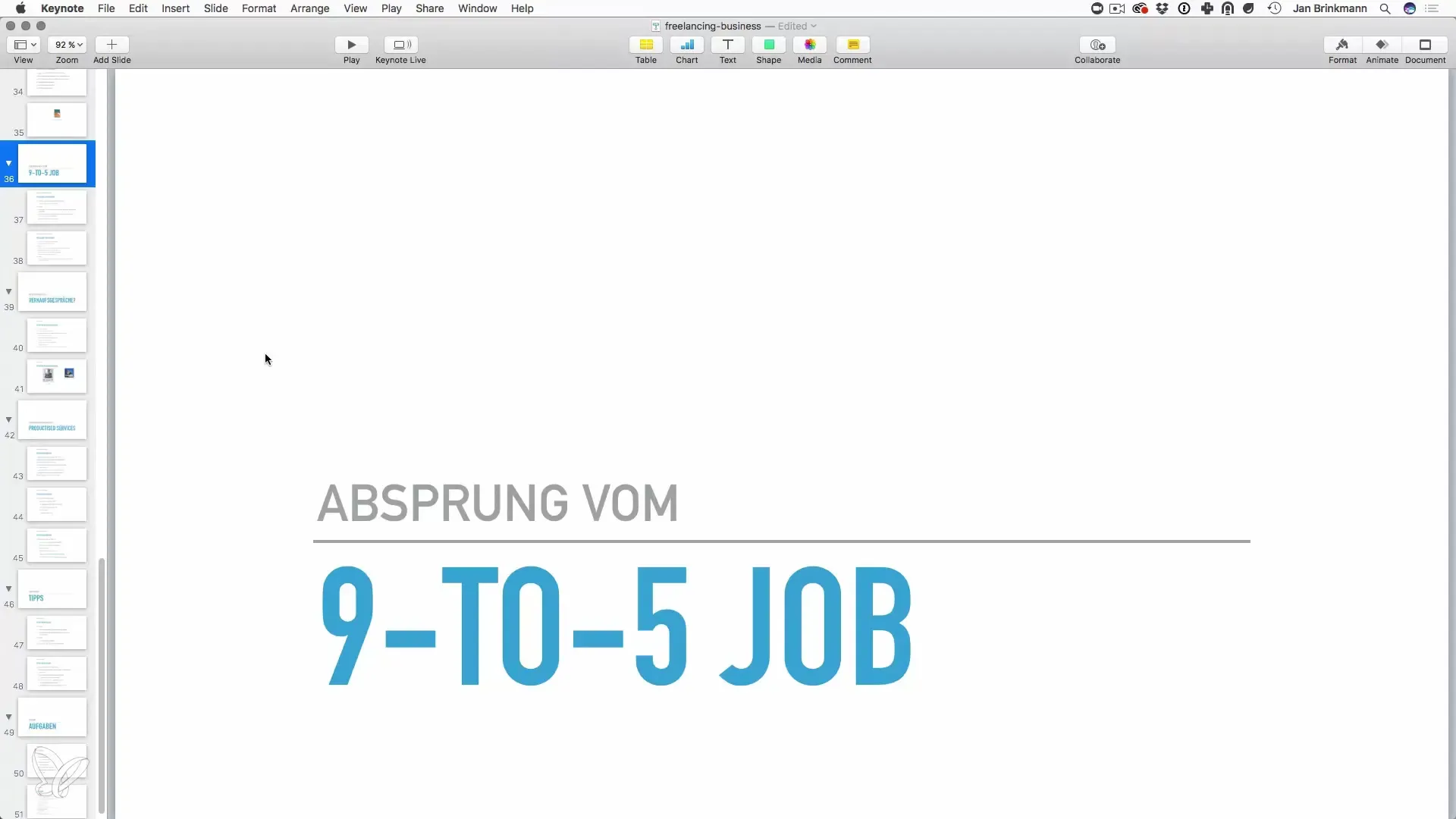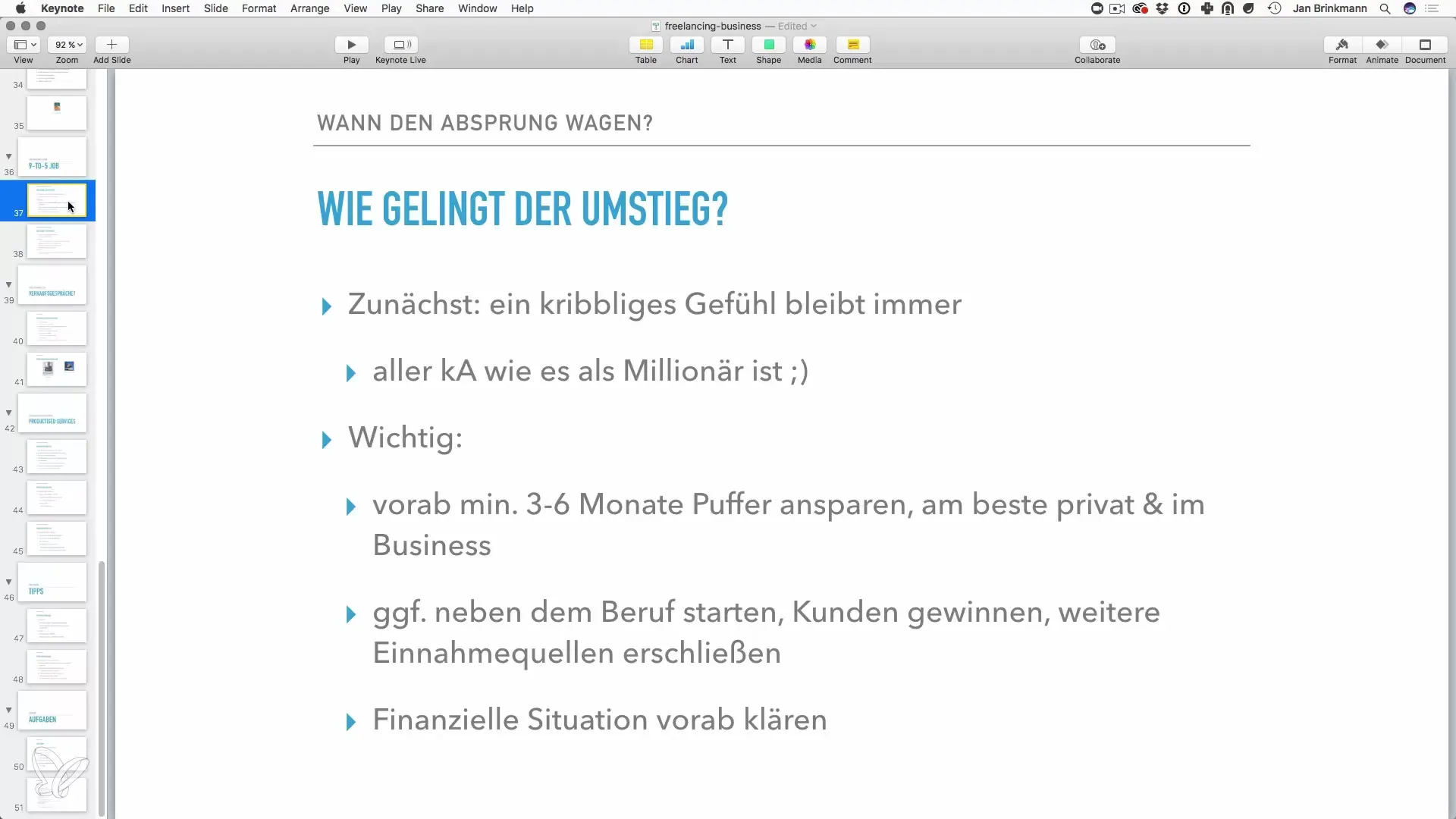The leap from a classic employment relationship can be a crucial and exciting decision in your professional life. When the desire for self-employment and the idea of starting out as a freelancer begin to blossom within you, it is important to weigh the right timing and the appropriate preparations. This guide will provide you with valuable insights and practical steps to effectively take this step with a certain level of financial security.
Key Insights
- Prepare sufficient financial buffers; ideally, you should be secured for 6 months.
- Start slowly by undertaking initial projects as a freelancer alongside your main job.
- The fear of the unknown is normal; however, it can be alleviated with careful planning.
Step-by-Step Guide
1. Recognizing the Right Timing
When you decide to take the plunge into self-employment, the first step is to identify the perfect timing. This can be challenging as the leap always comes with certain uncertainties.

Do not wait for the perfect moment. Often there is no ideal situation. Instead, focus on your vision and your goals. Consider whether you already have a customer base or have established potential client contacts. If you feel ready, then it is time to make some preparations.
2. Building Financial Security
A central point when making the leap is financial security. To avoid making hasty decisions, you should create a financial buffer.

It is recommended to save at least 3 to 6 months of financial security to get through difficult times without needing immediate income. You should also consider ongoing business and living expenses in these considerations to avoid being in a financial bind.
3. Starting Part-Time
Before you actually quit your main job, you can already gain experience as a freelancer by taking on initial projects on the side. This approach not only helps you acquire new clients but also increases your financial buffer.
Do not doubt that the additional work gives you financial security to move closer to your goal. Focus on reinvesting the money you earn as a freelancer back into your financial foundation rather than spending it immediately on luxury items.
4. Making Progress with Small Steps
A sudden leap can be very overwhelming; therefore, it is helpful to temporarily reduce your working hours in your main job.
For example, if you go from 40 to 30 hours per week, you gain time to dedicate more intensely to your freelance work without directly harming your financial security. This step-by-step approach allows you to take the time to successfully develop your new career.
5. Building Self-Confidence
The fear of the unknown will surely accompany you, but good planning and the experiences gained from your side job can help you develop the confidence you need for the final leap.
As entrepreneur and author Matthew McKird aptly puts it, entrepreneurship often means standing on a cliff and jumping while also trying to build a plane. However, reframe this image positively: view every challenge as a springboard into an exciting new era of your work life.
6. Making the Leap
Ultimately, the moment will come when you are ready – or better said, when your passion for self-employment begins to push you. Do not be discouraged if you feel there are still many uncertainties.
It is important to remember that you can only find out by trying. Be aware that every decision you make is a part of your learning process.
Summary - Successfully Entering Self-Employment: The Vital Leap from a 9-to-5 Job
The decision to make the leap from a secure 9-to-5 job into self-employment can be intimidating, but with careful planning and a solid financial buffer, the leap can be made more calmly. Start on the side, gain confidence, and eventually enter your new career as a freelancer with a clear plan and a firewall-level security.
Frequently Asked Questions
How much financial buffer should I have before becoming self-employed?You should save at least 3 to 6 months of your living expenses.
Is it advisable to start freelancing part-time?Yes, this gives you time and the opportunity to gain initial clients and experience.
How important is planning before the leap?Good planning is crucial to reduce fears and expand your financial maneuvering room.


